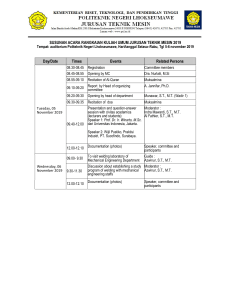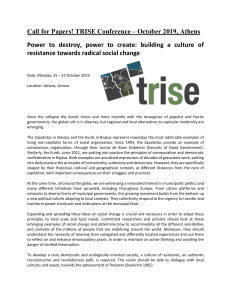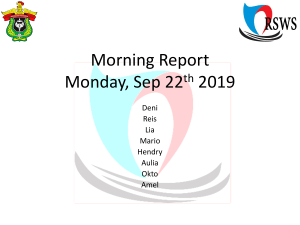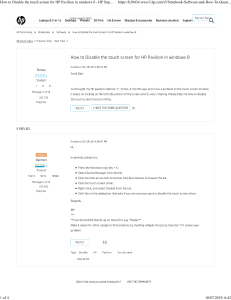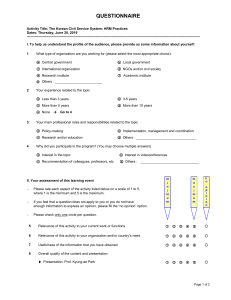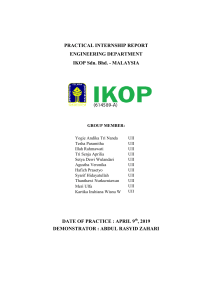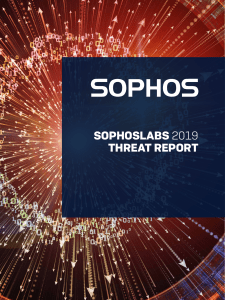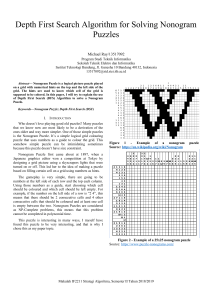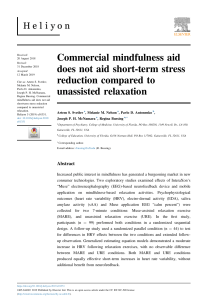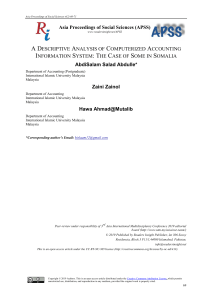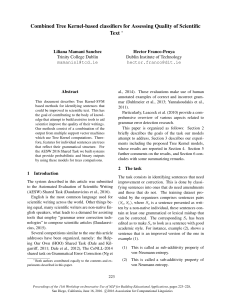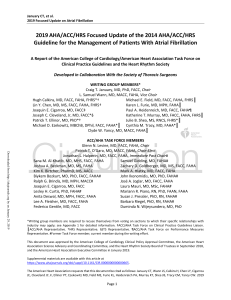Uploaded by
d.shinoda85
Sentence Types Analysis in IT Conference Papers: A Research Study
advertisement
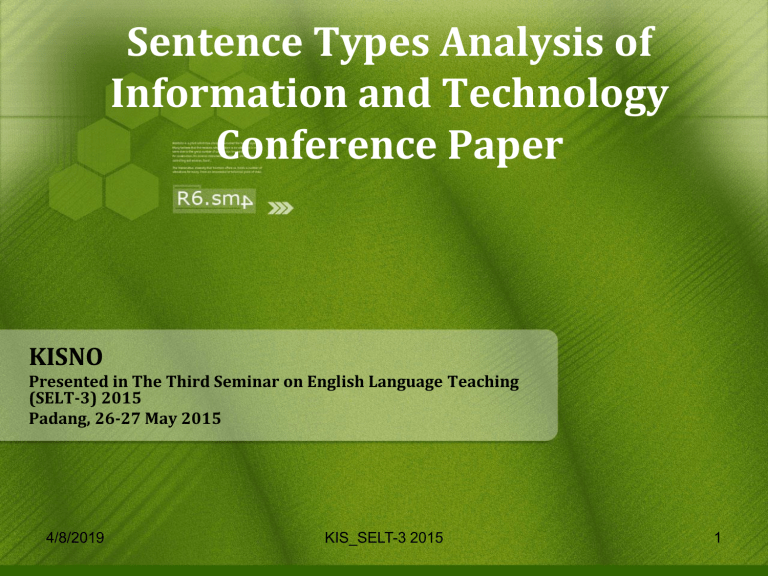
Sentence Types Analysis of Information and Technology Conference Paper KISNO Presented in The Third Seminar on English Language Teaching (SELT-3) 2015 Padang, 26-27 May 2015 4/8/2019 KIS_SELT-3 2015 1 Background • Text for university level is different from one to another. • This is due to the needs which is tailored by the designer. • An investigation upon the sentence types that construct an information and technology text is then required. • This study is strongly related to the passages or texts read by the university level students. In this case is IT majoring students. 4/8/2019 KIS_SELT-3 2015 2 Objective and Significance • To find out the sentences types used in an information and technology text and to find out the kind of sentences dominating an information and technology text. • This research is expected to give a contribution to the ESP subject and to describe the sentence types written by the author of an information and technology text. 4/8/2019 KIS_SELT-3 2015 3 Literature Review • a text is recognized as scientific English because of the combined effect of clusters of features and, importantly, the relations of these features throughout a text (Halliday, 1993). • similarly the genres of science and technology partially constitute the various disciplines, and cannot be separated from them (Paltridge, 2012). 4/8/2019 KIS_SELT-3 2015 4 Methods • The data were taken from an IT conference paper/text entitled “Dashboard for Monitoring Network Operations” written by an author teaching assistant in Del Institute of Technology used with permission. • Analyzing the data by breaking down the sentences and classifies them based on the theory of sentence types given by Greenbaum and Delahunty and Garvey (2010). 4/8/2019 KIS_SELT-3 2015 5 Methods • Sentence types classification: – – – – Simple Sentence Compound Sentence Complex Sentence Compound Complex Sentence • After classifying the sentences into their types, the researcher will calculate the number of each sentence type and then draws a conclusion based on the quantitative calculation to answer the research questions. 4/8/2019 KIS_SELT-3 2015 6 Findings 4/8/2019 KIS_SELT-3 2015 7 Findings 4/8/2019 KIS_SELT-3 2015 8 Conclusion • There are four types of sentence in the IT text. • Complex sentence is the most dominating sentence in the text. Nearly 50% of the text is written in this type of sentence in which a main clause is combined with a subordinate clause. • Simple Sentence is the second type of sentence dominating the text. 23% of the text is written by this type of sentence. This type of sentence is usually used in giving instruction or step by step. 4/8/2019 KIS_SELT-3 2015 9 Conclusion • Compound Sentence and Compound Complex Sentence less dominate the text. Compound Complex Sentence has 17% of the total sentence while Compound Sentence only has a portion of 10% in the text. • Complex sentence was frequently used by the author of the information and technology text so as to give more description about the items and the features of the items the author described in the paper. 4/8/2019 KIS_SELT-3 2015 10 Suggestion • In English language teaching, especially in writing subject, the students are suggested to write down their paper or writing assignments using more complex sentence since many features of information and technology should be described in details. 4/8/2019 KIS_SELT-3 2015 11 Bibliography • • • • • • • Gerald P. Delahunty and James Garvey. (2010). The English Language: from Sound to Sense. Indiana: Parlor Press. Greenbaum, Sidney. (1996). The Oxford English Grammar. Oxford: Oxford University Press. Halliday, M.A.K. (1993a). On the Language of Physical Science. In M.A.K. Halliday and J. R. Martin (eds.), Writing Science. 54-68. London: The Falmer Press. Paltridge, B. (2012). Discourse Analysis. 2nd ed. London: Continuum. Parkinson, Jean. (2013). English for Science and Technology in Handbook of English for Specific Purpose. West Sussex: John and Wiley Sons, Inc. Richards, Jack C. and Richard Schmidt. (2002). Longman Dictionary of Language Teaching and Applied Linguistics. London: Routledge. Siahaan, Sanggam and Kisno Shinoda. (2008). Generic Text Structure. Jogjakarta: Graha Ilmu. 4/8/2019 KIS_SELT-3 2015 12
